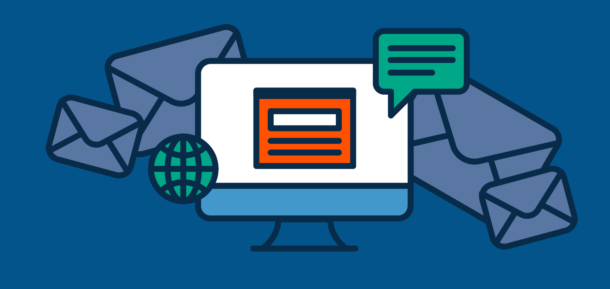Call center solutions play a key role in providing a higher level of customer service for businesses. With its advanced features and capabilities, it enables businesses to effectively manage inbound calls, improve customer interaction and deliver a superior customer experience. In this article, we’ll explore how call center software achieves this goal and the various benefits it brings to businesses.Automatic Call Distribution (ACD): A key feature of call center software is Automatic Call Distribution, which intelligently routes incoming calls to the most appropriate agent or department. This ensures that customers are quickly connected to the right person, minimizing wait times and improving first-call resolution rates. ACD algorithms can be configured based on various factors such as skill level, agent availability and customer preferences, ensuring efficient call handling and personalized service.Interactive Voice Response (IVR): IVR systems are another important part of call center software. An IVR allows customers to interact with a menu of options using the phone’s keypad or voice recognition technology. Assists in routing calls to the appropriate department or provides self-service options for common inquiries such as checking order status or account balances. IVR systems improve the efficiency of handling calls, reduce the workload of agents and allow customers to get quick answers to their questions.Call Queuing and Callback: In situations where all agents are busy, the call queuing feature manages incoming calls by placing them in a queue until an agent is available. Call center software can provide estimated wait times, queue position, and even offer customers the option to request a callback when an agent is available. This reduces caller frustration, increases customer satisfaction and ensures that calls are not lost or dropped.CRM Integration: Integrating call center software with customer relationship management (CRM) systems allows agents to access relevant customer information during calls. They can view customer history, previous interactions and any ongoing issues, enabling personalized and efficient service. With a comprehensive view of the customer journey, agents can provide tailored solutions, solve problems faster and deliver a more satisfying experience.Real-time Analytics and Reporting: Call center software provides real-time analytics and reporting, providing businesses with valuable information about call center performance. Key performance metrics such as call volume, average processing time, wait times and agent availability can be tracked and monitored. These metrics help businesses identify bottlenecks, measure agent performance, and make data-driven decisions to improve service levels and operational efficiency.Call Recording and Monitoring: Call center software allows businesses to record and monitor calls for quality assurance purposes. Supervisors can listen to recorded calls to assess agents’ performance, provide feedback, and identify training needs. Live call monitoring also allows supervisors to intervene when needed to ensure customer interactions are handled efficiently and consistently.Skill-based Routing: Call center software allows businesses to implement skill-based routing that ensures calls are routed to agents with the appropriate expertise. By matching customer inquiries with agents who have the required knowledge or language skills, businesses can provide more accurate and efficient assistance. Skill-based routing improves the quality of customer interactions, increases the speed of first call resolution and reduces the need for call transfers.Multi-Channel Support: In today’s digital age, customers expect multi-channel support. Call center software often integrates with other communication channels such as email, chat and social media platforms. This enables businesses to provide consistent support across multiple channels and ensure a seamless customer experience. Agents can access customer interactions from multiple channels within a unified interface, increasing their efficiency and enabling a holistic view of customer communications.
The saying, “What is measured, improves” could not be more accurate when implementing a contact center solution.
Managing, monitoring and reporting on phone calls in a business is crucial for several reasons. Here are some key benefits:
Quality Control: By managing and monitoring phone calls, businesses can ensure consistent quality in customer interactions. It allows managers to identify and address any issues or deficiencies in communication skills, product knowledge, or customer service, ultimately improving customer satisfaction.
Training and Development: Phone call monitoring provides valuable data for training and development purposes. Managers can review recorded calls or call transcripts to identify areas where employees may need additional training, coaching, or guidance. This helps in improving employee performance and enhancing their skills.
Compliance and Legal Requirements: Certain industries, such as finance, healthcare, and telemarketing, have specific legal and regulatory requirements for phone call monitoring. By managing and monitoring calls, businesses can ensure compliance with industry regulations, such as recording calls for audit purposes or adhering to specific data protection guidelines.
Performance Evaluation: Monitoring and reporting on phone calls allows businesses to evaluate employee performance objectively. Metrics like call duration, average handling time, call resolution rate, or customer satisfaction scores can be analyzed to assess individual or team performance. This information can be used for performance appraisals, incentive programs, or identifying high-performing employees.
Customer Insights: Phone call monitoring provides a valuable source of customer insights. By analyzing call data, businesses can identify recurring customer issues, common questions, or areas where customer expectations are not being met. This information can guide product or service improvements, inform marketing strategies, or help identify upselling or cross-selling opportunities.
Dispute Resolution: In case of customer disputes or conflicts, having recorded calls or detailed call logs can serve as evidence and help resolve conflicts more efficiently. Businesses can refer back to recorded conversations to clarify misunderstandings, resolve complaints, or address any issues raised by customers.
Process Improvement: Analyzing call data and reports can reveal patterns, bottlenecks, or inefficiencies in business processes. It allows managers to identify areas for improvement, streamline workflows, and implement changes that can enhance overall operational efficiency and customer experience.
Overall, managing, monitoring, and reporting on phone calls in a business facilitates better customer service, employee development, compliance and process optimization. It leads to improved customer satisfaction, higher productivity, and ultimately, better business outcomes.
Ready to move your phone system to the cloud? Let’s talk. Call or text FlexIP Solutions at 833.779.7700.


